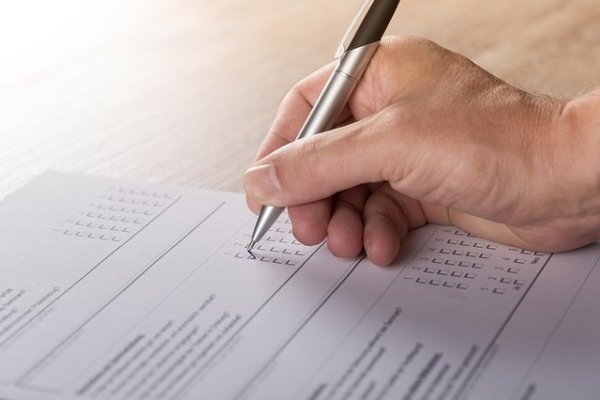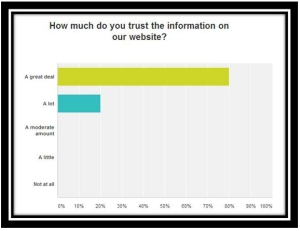Preparedness Survey for Your Group or Town?

One of my favorite sources for preparedness information is the online newsletter, Government Technology. (It has various sections, including Emergency Management, Cyber Security, Emergency Tech, Cloud, and more.) Two weeks ago the magazine included a report from a local Oklahoma newspaper on the results from a preparedness survey.
The article really struck home and has pushed me to further action here in my own neighborhood! I hope you’ll find it as interesting as I did!
Background to the preparedness survey
OK, swivel your thinking from wherever you are right now to the middle of north-central Oklahoma. Plains, rolling hills. Flooding earlier this year. Consider, specifically, the town of Stillwater.
(For those who like to know stuff like this, the area was settled in the 1880s and 90s during a series of famous “land rushes.” Today, it is the 10th largest city in Oklahoma with about 47,000 inhabitants and is home to Oklahoma State University.)
It turns out that Stillwater put out a “flash-survey” on the topic of emergency preparedness. They sent the survey to citizens who had signed up to participate.
(Note that whenever you have people willing to “self-select” you tend to get more accurate responses.)
And here are some of the survey questions – and answers.
Please think about what YOUR answers would be!
Question: What disasters do you
worry about?
Stillwater: Tornados (93% named this as #1!), floods and then earthquakes.
Other choices were wildfires, public health emergencies, heat, cold, and
terrorist activity. Plus “other” – which was mostly power outages.
Your turn: What disasters to YOU
worry about? (Are you being realistic?)
Question: What have you done to prepare? (I assume they provided a list of options to check.)
Stillwater: Flashlight and extra batteries (81.5%), first aid kit (68%), portable radio (less than half), NOAA weather radio (37%), 3-day supply of food (less than 50%), 3-gallons of water per person (22%). “Have done nothing” (10%).
Your turn: What preparations have YOU made?
Question: Have you signed up for Stillwater’s emergency alert
system?
Stillwater: Yes,
45%. Never heard of it, 55%.
Your turn: Have YOU signed up for
your local alert system?
Question: What does our community
need to do a better job of when it comes to emergency management?
Stillwater: More public trainings or drills; need more public or community
tornado shelters.
Your turn: What more should YOUR
community be doing? Have you let them know?
So here’s the last question, and it comes not from the Stillwater newspaper,
but from Emergency Plan Guide.
Question: What answers would your neighbors give to these survey questions?
What’s the next step?
If you’re not sure what your neighbors’ answers would be, why not put out your own survey so you are working with facts, and not supposition? You can do an online survey, via SurveyMonkey (free if fewer than 10 questions and 100 responses), or on paper.
Some suggestions for designing your survey (based on my years in the marketing world!):
- More than 10 questions will depress response.
- If you make the survey anonymous you’ll get more responses.
- To improve response and capture names and/or emails and build a list – add a deadline with offer of a drawing and prize to the winner. At the very minimum, promise to share results of the survey with participants.
Whether you make it formal or informal, the answers to your survey should serve to help as you plan for upcoming meetings or events for your community.
After all, September is preparedness month – so you could use the survey to get the ball rolling for your team! That’s what we’re planning to do!
Virginia
Your Emergency
Plan Guide Team
P.S. Need some suggestions for questions to include on your survey? SurveyMonkey has a sample survey on their site. I’m not necessarily recommending it but it may help you get started drafting your own. Here’s another sample series of questions from the State of Indiana:
If you need more details of what preparedness options to put on your survey (“Check all that apply.”), the government offers this basic list. We also have an even more complete list here at Emergency Plan Guide.
P.P.S. Thanks to reporter Michelle Charles, who wrote about the survey in the StillwaterNewsPress. Let me know what YOU decide to do with a survey and I’ll pass along to her the impact that her article had, across the country!

 The first interesting question made me really pleased. The image shows the question and the result: 100% of the respondents trusted the information on the site “a great deal” or “a lot.”
The first interesting question made me really pleased. The image shows the question and the result: 100% of the respondents trusted the information on the site “a great deal” or “a lot.”